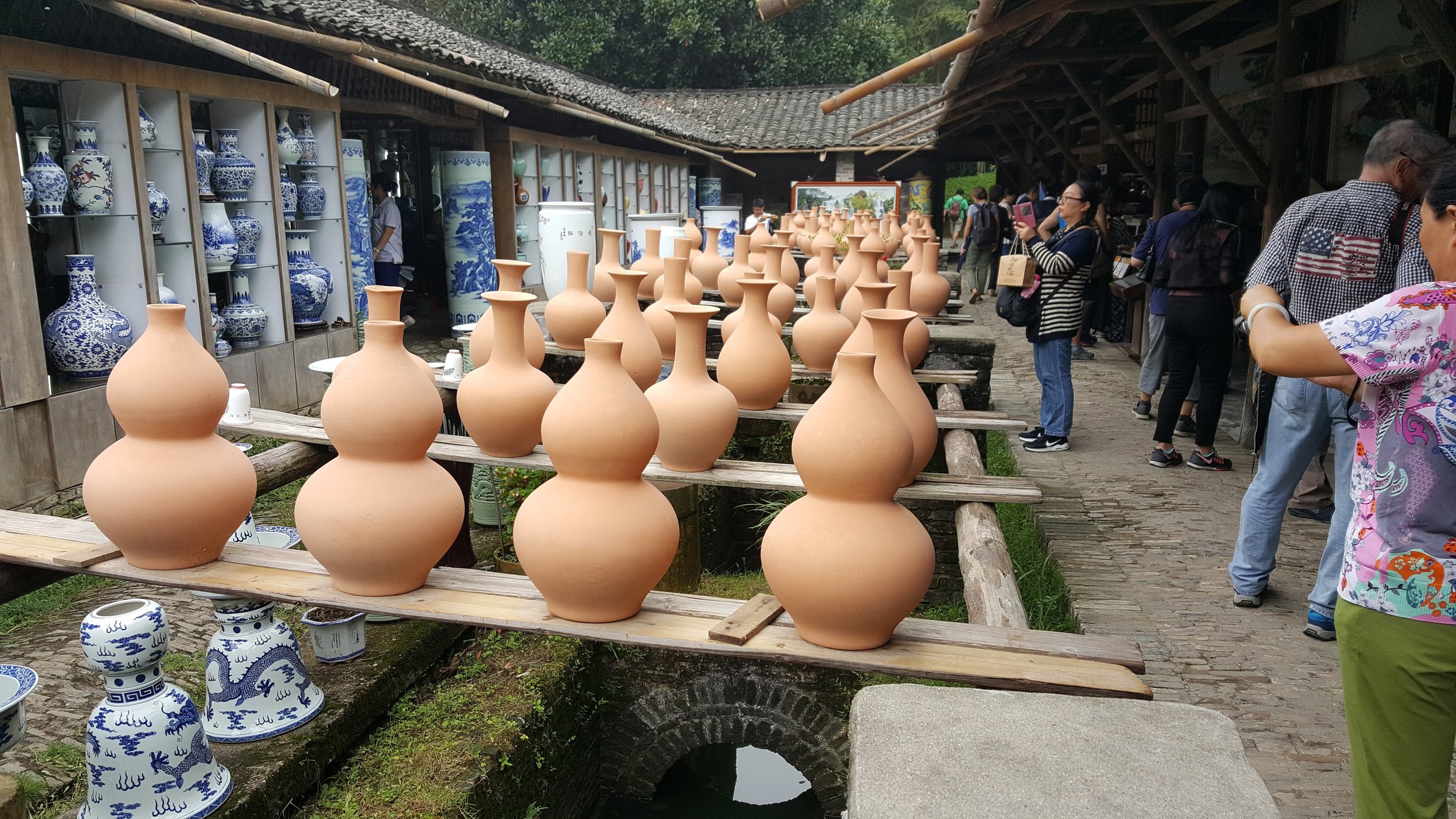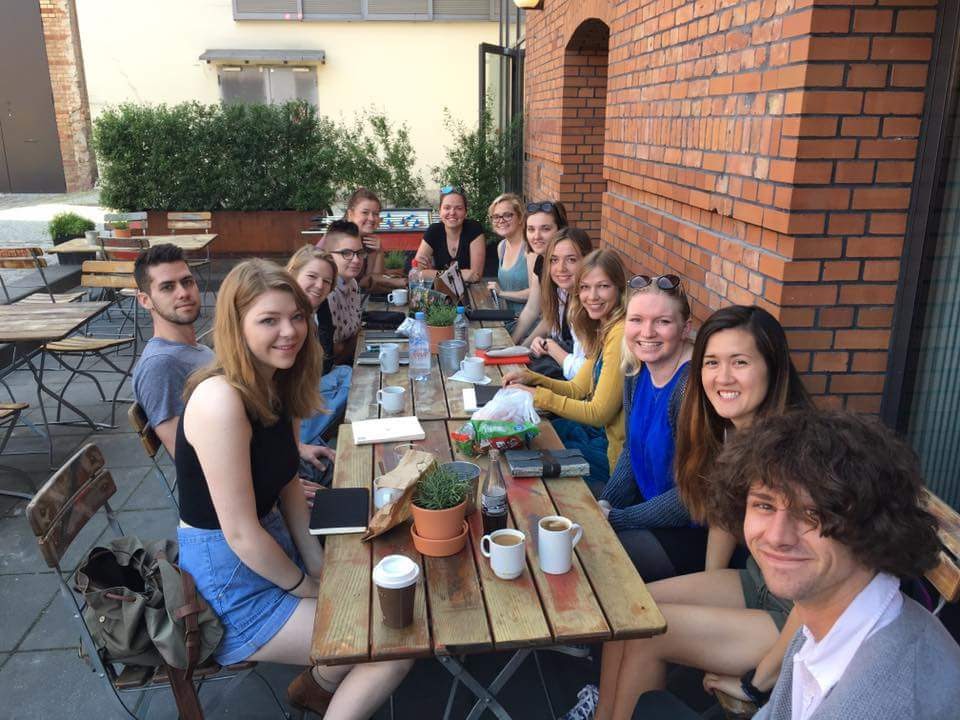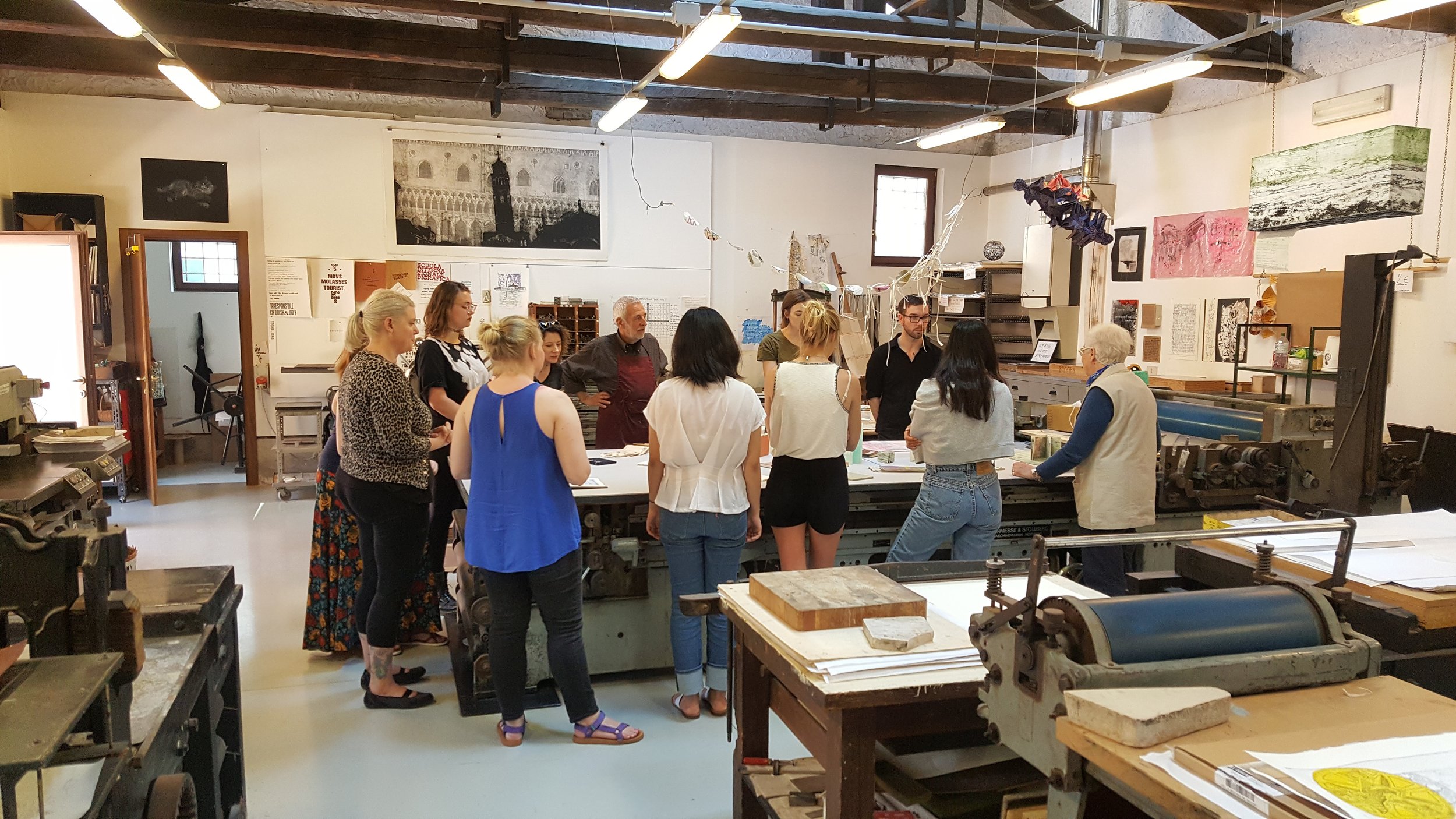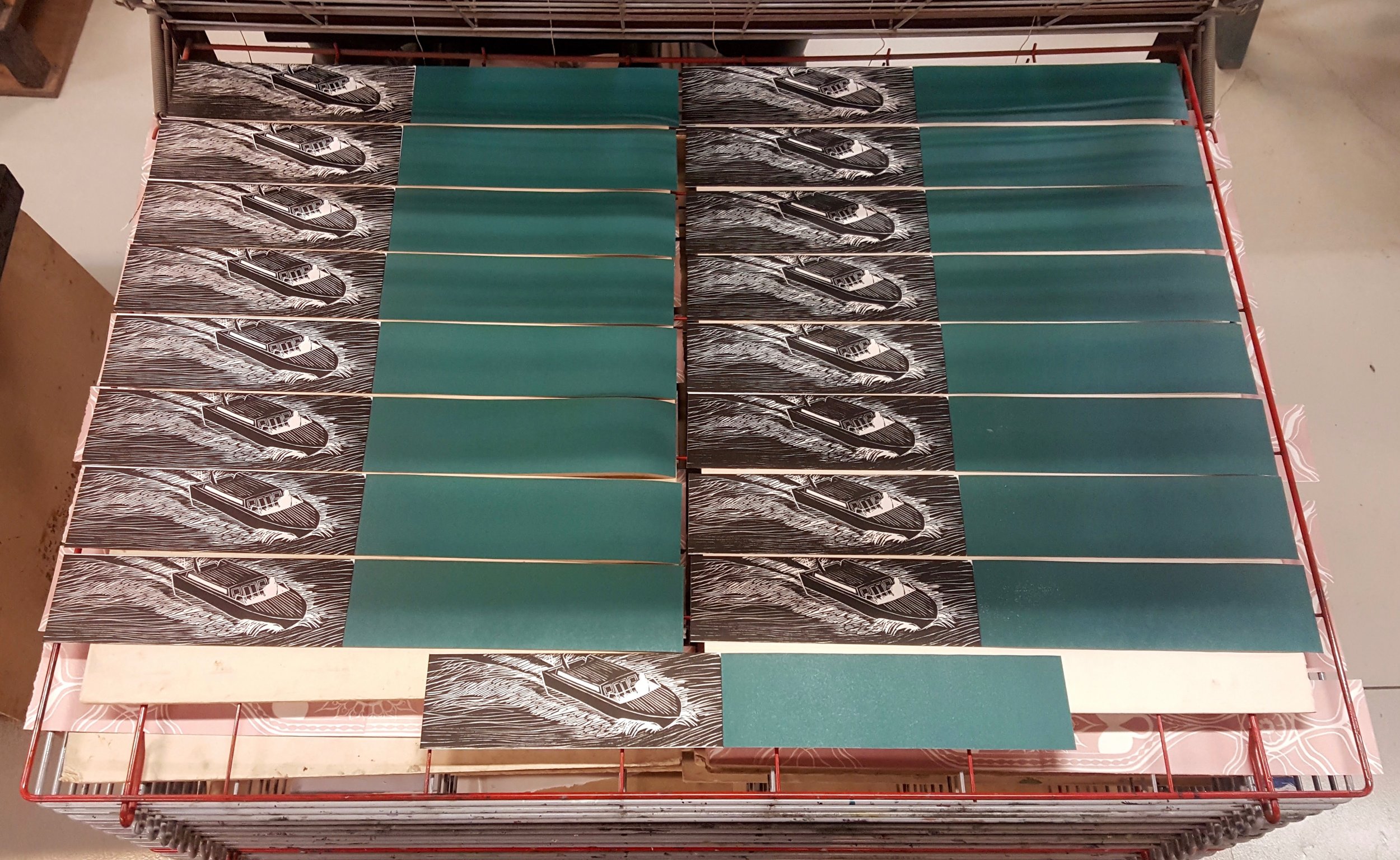Go Abroad
Studying abroad can be one of the most fulfilling experiences you do to invest in your education.
Just around 7% of students who study abroad are fine or applied arts majors, according to IIE's 2017 Open Doors Report. While there is still a lot of work to be done on the academic development of art programs by professors and more overall university support for international education, art students can still find programs and support to travel, study and thrive abroad. Our world was built by artists, architects, craftspeople and creatives, and we should be able to explore and learn from both our historical past and cultural present.
Studying abroad offers a unique setting to earn academic credit towards your degree in an international setting. You can only study abroad while you are in school, whether it's for a high school, undergraduate or graduate degree! Generally, you only have four to six years in your entire life to study abroad. You also have more time and flexibility to travel now as a college student before getting tied down with life and studio commitments. So let's make the most of your opportunities!
Finding Resources
Let's be real, money is a huge factor in deciding whether you are going to study abroad. While you shouldn't expect for scholarships to cover all of your study abroad costs, they can greatly reduce the sticker shock that keeps many students from studying abroad in the first place! As you will read, the common threads through all of my advice is doing thorough research and communicating with your program, academic and financial aid advisors.
Pro-tip watch how many zeros you withdraw from the foreign ATM!
(Side note: I will be using a lot of examples to describe where to find money. If it gets confusing, just shoot me a message on my Connect page to clarify so I can make these resources even better!)
I recommend starting with your program and program advisors / directors to find out if the program has money set aside for financial aid or scholarships. These scholarships may be through your program's school, which may be different than your major's school. For example, you may be enrolled at your university's Art School and your program is through the Liberal Arts College - talk with your program advisor as well as the scholarship coordinators of both schools, as you are eligible for twice the money!
Speaking of program hosts, if you are studying abroad through a program provider or sponsor like IES or CIEE (more information about them to the right under Finding Your Program) check out their funding opportunities on their respective websites or by talking to your program coordinator.
Next, check with your university's study abroad office, as well as the university or campus' office that your program is hosted through. For example, I attend IUPUI and go on a program with IU Bloomington; both campuses / study abroad offices have their own pool of scholarships I can apply for.
On a broader note, you can also apply for "regular" scholarships through your university that can increase your overall financial aid awards you receive for the academic year or semester. You would be surprised on how few students apply for all those scholarships!
Talk with your university's financial aid advisor as well. Depending on your university and / or program, they may be able to adjust your Cost of Attendance (COA) on your FASFA to get your more aid.
Finally, look in your community! Places like community foundations and local banks and credit unions may have county- or regional-specific scholarships and funds for students. This includes both your home community and your university's community!
If you still come up empty handed, below is a helpful list* of resources and funding opportunities I've curated for anyone looking to study abroad:
Finding Your Program
Please first check out your university's or college's study abroad office, they are there to help you study abroad and find a program that fits with your degree!
Also, please talk with your academic advisor and university's study abroad office about degree requirements as well as how you need to transfer credits if you use another university or program provider / sponsor.
Below is a list* of program providers or program search engines I have curated for those interested in exploring the thousands of available programs:
Program Providers / Sponsors
Program Search Engines
In March 2018, I gave a student talk at the annual National Council on the Education for Ceramic Arts (NCECA, for short) conference in Pittsburg, PA. Check out my talk below, or click here to open in a new window.
*Please note that I am in no way affiliated or being paid to post these resources or link to specific websites. I just think these are resources worth sharing. If there is a better website out there, I would love for you to share it with me using my Connect page.






